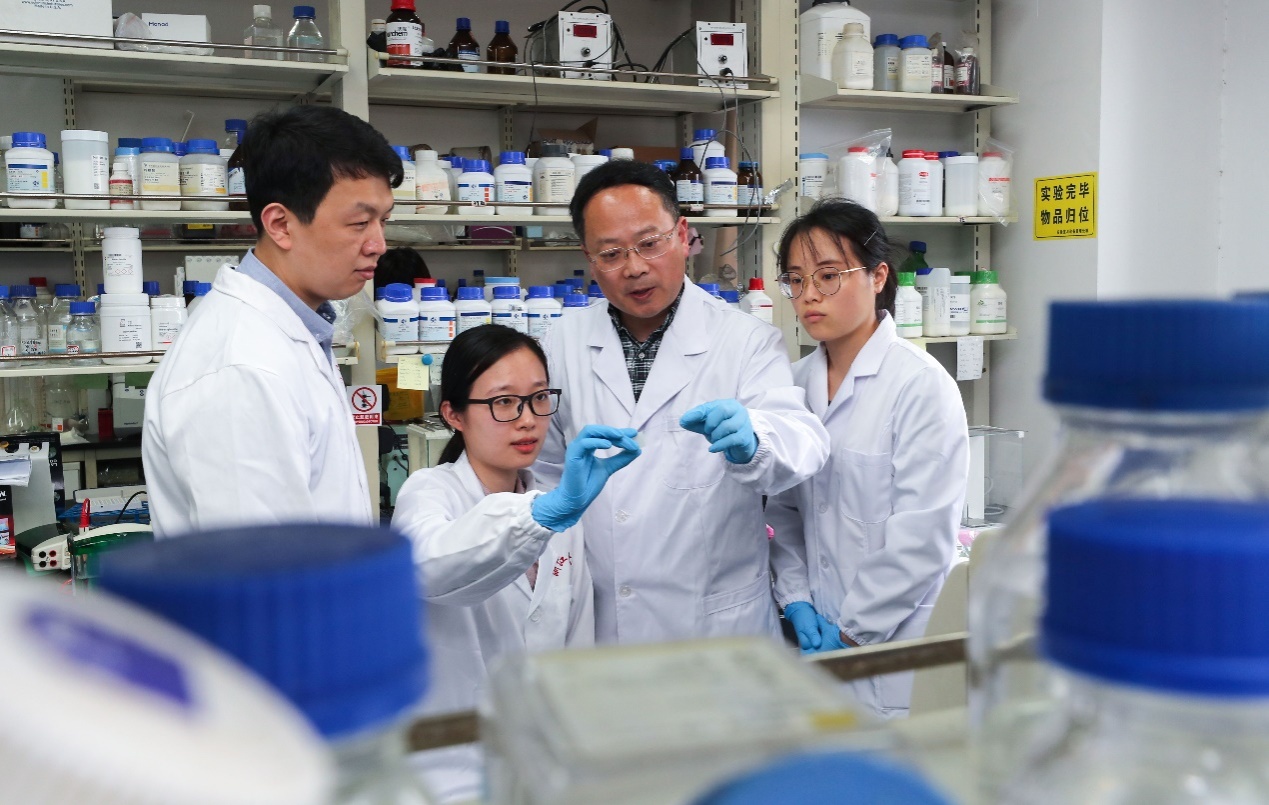Recently, Autophagy published the research results from Professor. Chen Zhong and Professor. Zhang Xiangnan online. They revealed for the first time that ubiquitination of BNIP3L is the important reason for the absence of mitophagy. They also discovered that restraining the ubiquitination of BNIP3L to restart mitophagy may be a potential treatment strategy for permanent cerebral ischemia. The research has also provided important experimental basis for using Carfilzomib to treat permanent cerebral ischemia.
Cerebral arterial thrombosis is a nervous system disease caused by insufficiency of cerebral blood supply because of vascular stenosis or occlusion. It has comparatively high rate of morbidity, fatality, disability and recurrence. The most effective treatment is to dredge the vessels in a short period of time to recover the blood circulation in brain. The only drug approved by FDA for treating cerebral arterial thrombosis is tPA. However, tPA is only effective when used in a short time after cerebral ischemia. Many patients who can’t get treatment during this time will get permanent cerebral ischemia. Due to complexity of pathomechanism of cerebral ischemia.
The research team led by Pro. Chen Zhong and Pro. Zhang Xiangnan has discovered that dredging the vessels (cerebral ischemia-reperfusion) can activate mitophagy, injured mitochondrion was removed from human body to mitigate nerve injury. During the process, BNIP3L is the key to mediate mitophagy. However, the research team realized that after patients get permanent cerebral ischemia, mitophagy will stop. And one interesting thing is that specific expression of BNIP3L dimer decreases in this process.
What’s the relationship between mitophagy and the expression of BNIP3L? The research team from ZJU found that recovering the expression of BNIP3L can protect nerve through restarting mitophagy using multiple research methods.
Furthermore, the research team also discovered that with permanent cerebral ischemia, BNIP3L is degraded by ubiquitin-proteasome. Inhibiting the activity of protease can mitigate the degradation of BNIP3L and activate mitophagy.
Based on the discovery, the research team conjectured that proteasome inhibitor used to treat multiple myeloma can be used to treat ischemic brain injury. They chose Carfilzomib to verify their speculation and discovered that Carfilzomib can inhibit BNIP3L degradation, activate mitophagy and protect nerve.

the process of mitophagy reactivity
Pro. Zhang Xiangnan believed that the research results explained the reason for the absence of mitophagy in permanent cerebral ischemia, giving us new understanding regrading pattern of mitophagy. Moreover, preventing BNIP3L degradation may be a new strategy in cerebral ischemia treatment. The research team is still conducting further research to further reveal the mechanism of BNIP3L degradation, and seek drug intervention targets that is safer and more efficient.
(Compiled based on Qiushi Newsroom)


